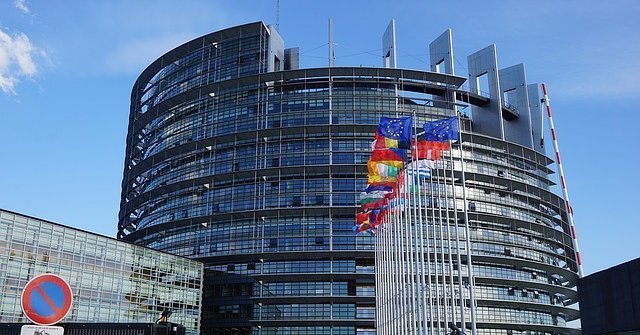It seems to me that the division between EU supporters and nationalists is not a novelty in 2019. Both in 2009 and in 2014, the theme of European elections focused on the constant growth of Eurosceptic parties, a theme that will surely characterise this round of voting as well. In the last decade, the division between pro-EU supporters and Eurosceptics has been very obvious at a European level, both with regard to institutional positions and – very often – regarding the European Commission’s proposals. We cannot hide the fact that the electoral programme of centre-right parties, socialists and liberals were very similar in 2014 and in 2009.
The European elections of this year, as the previous ones, will witness the growth of the Eurosceptic minority as a consequence of the crisis of the traditional parties. There is a minority that still cannot create a common front because of disagreements among the nationalist leaders with regard to policies related to migration and budget. And on the other side there is a majority which is losing power but that, so far, has maintained a certain unity close to the Commission and – especially after Brexit - could begin projects for institutional development, defence policy and tax system.
The only news about the next European elections is the division within the historical pro-EU front.
For several reasons, one of the pillars of European political life is going to break down: the historical alliance between people’s parties (translator’s note: centre-right parties) and socialists. The mid-term election of the President of the Parliament has been the casus belli. Ever since the opening up of the European People’s Party to Orban, and the inevitable loss of votes of the Party of European Socialists (also due to the departure of the British Labour Party), the rise of new actors external to the traditional parties, as En Marche in France and the 5 Stars Movement in Italy, will continue.
The numbers will surely not allow the organisation of a majority restricted to people’s parties and socialists. It is not excluded that at the end, the President of the Commission will be supported by people’s parties, socialists and liberals, but for the first time it is highly possible that people’s parties are going to look for the support of the right-wing parties. In light of this risk, socialists will have to choose whether they want to build a soft campaign against the people’s parties, or present themselves as a real alternative to them.
The necessity of proposing a true alternative to the people’s parties would make socialists, green and the left parties create a European political agenda and fight in the first European campaign. This would also be the only possibility to gain back a consensus that has been lost in favour of anti-system parties that, right or wrong, represented the only alternative to the political leadership established in Europe in the last decades. This would bring back at the centre of the traditional European coalitions the support of the people, a key element of success for pro-European actions, mostly pioneered by France and Germany.
At this point, we should wonder about the process of institutional development and this topic is quite interesting. The question is the following: should the fact that the Commission becomes more and more political, and the creation of a bipolar European political system, be considered a positive or negative element in the fight for European unity?
As for the new fight between conservatives and parties with progressive attitudes at a European level, it is possible that proposals regarding institutional development stay in the background as the real campaign will be based upon political proposals.
We know that, without institutional developments, the tools employed today are not effective to realise European policies. But we have to be aware that the questions of citizens need political, not institutional answers.
Meanwhile, if parties focus on ambitious policies, some institutional developments will be required, and they will be asked to accomplish them. In other words, we would face again a new contradiction.
A strong electoral mandate with an agenda full of political proposals, in line with the Spitzenkadidaten, would represent a significant counterbalance to the influence of member states on the European Union. These elements would lead to discussions about the necessity of unanimous vote regarding some topics. The institutional development towards a parliamentarian governance, within a federal situation, would be a spontaneous transition to realising the political priorities represented by the European Parliament.
All this is not enough if it is true that we should combine the idea of “more Europe” with “a different Europe”, as Professor Majocchi correctly says. There is the risk that this becomes a vague idea of European unity without fostering any feelings, just because the European Union is becoming an irrevocable institutional reality. A long time ago the European Union was considered to be an innovation, a utopia. Today, the European Union has a Parliament, a currency, the Court of Justice, a central bank, a government. Obviously, status quo limits are clear to all of us, but for citizens the institutional development is not a thrilling challenge anymore.
At the elections, citizens will not need to know “what kind of Europe” the parties are part of, but they will need to know the answer to the following question: “what will Europe do for us?”. They want the possibility to choose a European Union based on development, welfare, employment, enterprises, ecology, security, immigration policies, rights, solidarity, a European Union based on peace and with a precise mission in the world.
Parties are the only ones able to come up with alternative proposals and challenges in the campaign. This would provoke a rich interest in the parties’ several proposals, thus gaining back the support of the voters stuck between the unsustainable defence of the current pro-EU proposal and the worrisome perspective of destroying the Treaties, the nationalists’ proposal.


Follow the comments: |
|
